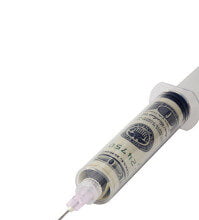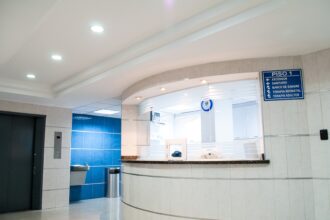 LoneStar Heart, Inc. is a Texas and California-based biomedical company focused on developing technologies and therapies to preserve and restore heart functions to patients with congestive heart failure (CHF).
LoneStar Heart, Inc. is a Texas and California-based biomedical company focused on developing technologies and therapies to preserve and restore heart functions to patients with congestive heart failure (CHF).
Congestive heart failure affects as many as 5 million Americans and with an aging population, more than half a million patients are diagnosed with the condition each year. The mortality rate for CHF is about 10 percent per year.
Lonestar Heart, (a privately held company) takes a “global approach” in their research and development by investigating implantable biopolymers, cardiac stem cell modulators alongside cell and gene therapies. In addition to acquiring and developing a number of intellectual properties, the company has developed a network of international thought leading scientists, clinicians and business partners.
Some of their recent developments include:
- defining the cardiogenic pathway – from stem cell to heart muscle;
- reprogramming cells by switching genes and gene combinations “on” and “off”;
- identifying microenvironments where cardiac stem cells reside;
- screening and validating biologics and drugs that can control cardiac cell fate; and
- implanting biopolymer scaffolds for therapeutic use – alone to provide mechanical relief to the muscle or in combination with proteins, peptides or drugs to promote tissue regeneration.
LoneStar’s lead product candidate, Algisyl-LVR, which is under clinical development, is intended to prevent or reverse CHF in patients with an enlarged left ventricle due to mitral valve regurgitation (the mitral valve not closing all the way and blood backflows into the heart), ischemia (heart blockage), dilated cardiomyopathy (left ventricle enlargement) as well as other cardiac disorders.
Algisyl-LVR is made up of an injectable proprietary biopolymer that is placed strategically in areas of the left ventricle muscle. The biopolymer thickens and becomes a permanent implant in the heart muscle. Acting as a prosthetic scaffold, the product aids in a number of long-term benefits including muscle wall thickening, chamber size reduction, decreased local muscle wall stress, reshaping of the dilated ventricle (based on implant location) and realignment of the papillary muscles.
LoneStar Heart is testing two product versions – one for cardiothoracic surgeons to use in traditional open chest surgeries (bypass or valve repairs) or through a minimally invasive standalone procedure. This product will be injected via a standard syringe with a custom needle system. The other version of the product will be offered to heart failure patients through a standalone, noninvasive procedure performed by interventional cardiologists.
In addition to their implant products, LoneStar Heart is working on a number of other advancements in the treatment of heart failure. Here are a few highlights:
Cardiac Stem Cell Modulators – The scientific teams at LoneStar Heart have identified mechanisms that trigger native cardiac stem cells to regenerate the cardiac muscle. Researchers at the University of Texas Southwestern Medical Center have screened and validated a number of small molecule drugs (in vitro) to switch the stem behavior into a tissue-regenerative mode. LoneStar Heart will work closely with UTSWMC in the advancement of these regenerative drugs.
Regenerative Cell Induction – Under this program, LoneStar Heart is investigating how genes and gene transcription factors may induce a much broader population of cells such as fibroblasts to become cardiac muscle cells. An example of this investigative therapy is the research on skin fibroblasts being manipulated to become stem cells with virtually the same characteristics as embryonic stem cells. The next stage is to see how these cells work in the case of tissue regeneration.
Biomaterials Program – The LoneStar bioengineering team is continuing to develop biopolymers that can be combined with drugs, peptides, proteins or cells to form a bioreactive scaffold. The aim of these developmens is to provide short-term heart muscle stress reduction and a longer-term mechanism for releasing bioreactive substances of therapeutic benefit in localized parts of the heart muscle.
LoneStar Heart will be presenting its products and technologies at OneMedForum SF 2012, on January 9 – 12.









